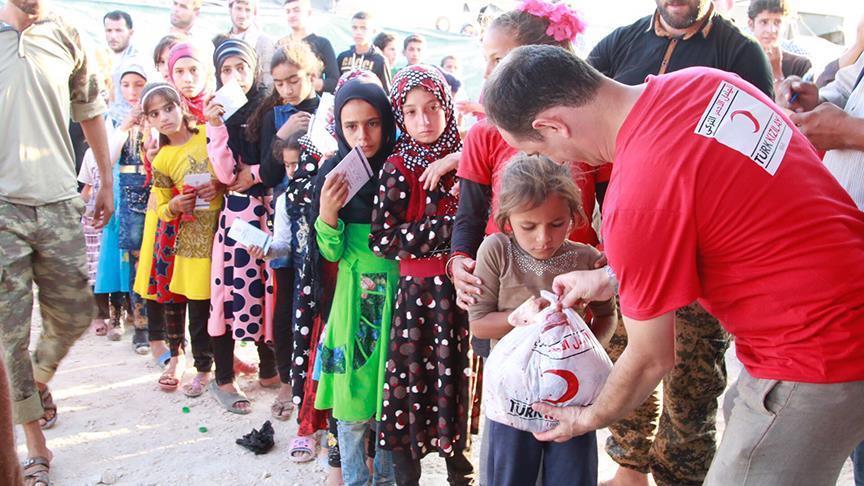
U.S. Secretary of State Mike Pompeo on Dec. 21 said Russia and China had blood on their hands after the two countries used a veto of a U.N. Security Council resolution to block cross-border aid deliveries from Turkey and Iraq to millions of Syrian civilians.
"The Russian Federation's and China's veto yesterday of a Security Council resolution that allows for humanitarian aid to reach millions of Syrians is shameful," Pompeo said in a statement.
"To Russia and China, who have chosen to make a political statement by opposing this resolution, you have blood on your hands," he added.
Russia, backed by China, on Dec. 20 cast its 14th U.N. Security Council veto since the start of the Syrian conflict in 2011.
The resolution, drafted by Belgium, Kuwait and Germany, would have allowed cross-border humanitarian deliveries for a further 12 months from two points in Turkey and one in Iraq. But Syrian ally Russia only wanted to approve the two Turkish crossings for six months and had proposed its own draft text.
Russia and China vetoed the text while the remaining 13 members of the Security Council voted in favor. A resolution needs a minimum nine votes in favor and no vetoes by Russia, China, the United States, Britain or France to pass.
"The United States will remain committed to helping the voiceless, the hungry, the displaced, and the orphaned receive the humanitarian aid they require to survive no matter where they live," Pompeo said.
Since 2014 the United Nations and aid groups have crossed into Syria from Turkey, Iraq and Jordan at four places annually authorized by the Security Council. In a bid to compromise with Russia, the Jordan crossing was dropped by Belgium, Kuwait and Germany from their draft.
The current authorization for the four border crossings in Turkey, Iraq and Jordan ends on Jan. 10, so the Security Council could still attempt to reach an agreement, though some diplomats acknowledged this could now be difficult.